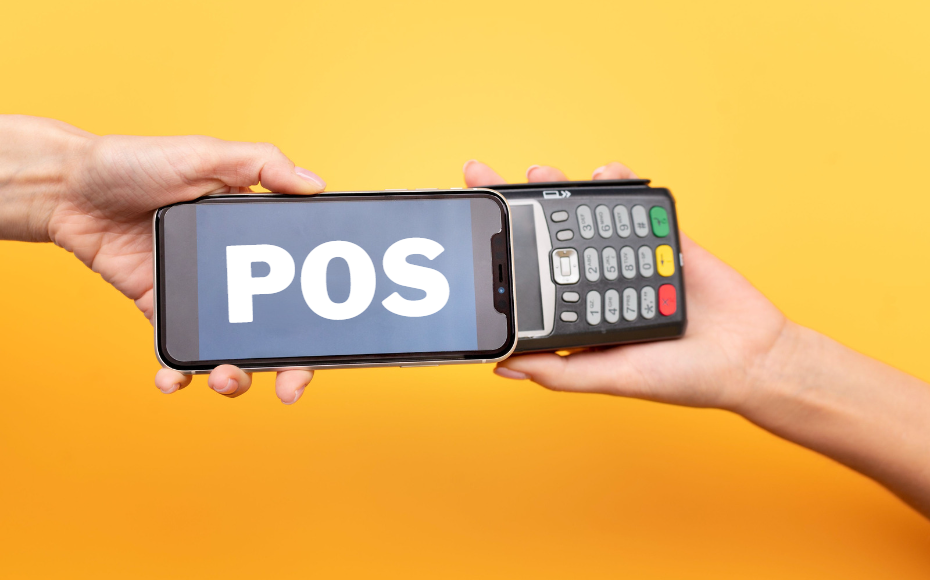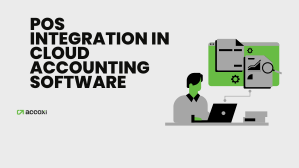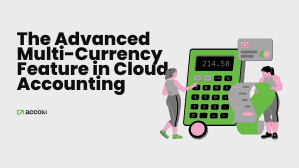

March 09, 2023

A combination of software and hardware which allows businesses to record sales data, complete purchases, view business performance reports and manage inventory and employees is known as a POS system. The most recent POS software helps businesses like restaurants and retailers integrate mobile POS features, contactless payment alternatives, e-commerce integration capabilities, and credit card processing. Let’s go through the details shared below to know more about POS systems.
The point of sale system, or POS, is where your consumer pays for products or services at your store. Customer completes a point-of-sale transaction whenever they make a purchase. A POS system is made up of two components: POS hardware and POS software.
The software can run on a local server-based or cloud-based, but small business owners choose the cloud-based software because of its usability, cost, security, ease, and convenience. With an internet connection, cloud-based software enables you to access your sales data from any device. Local server-based software is more stable, but it is also more expensive and usually designed for enterprises.
A POS system's primary purpose is to perform sales transactions. The point of sale is when a customer makes a purchase of products or services. A point-of-sale (POS) system will make that procedure secure and more efficient.
When a consumer decides which item to purchase, then that will be entered into the POS system, by scanning a barcode or entering a product code. Then the system determines the current prices of all items to any applicable sales taxes, fees, and deposits. The system completes the transaction after the customer decides on a payment option. The POS system can either print or email the customer a receipt after the transaction is completed.
This software handles credit card payments, issues receipts either physically or via email, and calculates the cost of the product or service being purchased together with all applicable taxes and fees.
It is important because modern consumers want personalized shopping experiences that offer some consistency whether they are shopping online or in a store. In order to create an experience that increases customer loyalty, support tickets and omnichannel retailers must align inventory and pricing.
Modern "bells and whistles," such as real-time visibility into inventory and customer history, can be added to POS systems by even the smallest retailers with technological advancements. These features give store associates the information they need to upsell, cross-sell, and make wise product recommendations.
Retailers can use a POS system to acquire information about the operation of each store's performance, customer purchasing habits, team member performance, which SKUs are gaining and losing popularity, and inventory glitches that might point to supply chain disruptions. They are able to maintain a close check on the important inventory KPIs.
The company’s enterprise resource planning(ERP) system will automatically synchronize with data from POS systems to track customer preferences, lifetime value, and other information, as well as with the customer relationship management (CRM) systems to track in-stock items, pricing, and store performance.
A POS system has features that will help to improve customer service and manage your sales process better.
The following features should be considered when looking for the best POS system for your business,
Your employees can use a POS system to calculate the total amount of the sale, add taxes and scan or key in the items that a customer is purchasing.
Depending on the POS system you select, customer sales data is recorded and stored either in the cloud or on a local server.
In the system you use to count up consumer orders, you can construct a menu or product catalog. The finest POS Systems keep track of inventory and update quantities automatically as products are sold.
You may assess business performance and analyze data for your sales, products, customers, and employees using a range of reports that the POS system can generate.
The majority of POS systems come with basic customer management tools that keep track of customer information and develop customer profiles you may use for marketing. Loyalty programs are frequently offered as an add-on or integration.
A POS system needs to allow you to limit employee access and abilities as well as record employee sales. Some with time-tracking and scheduling features, but these features are often integrations or add-ons.
If any company needs to process customer transactions accurately, securely, quickly, and efficiently, a POS system will benefit.
The majority of POS systems produce data on employee work hours for payroll systems. Beyond that, some can connect total sales by a worker to assist store management in realizing which salespeople are best at serving clients.
Many POS systems assist businesses with marketing strategies by collecting data that may be utilized to create distinctive consumer profiles, such as customer loyalty numbers or email addresses. This information aids teams in creating tailored marketing, such as producing suggestions in an online store based on things bought there.
For companies with several locations, a POS system guarantees uniform pricing in all of the establishments. When coupled with an e-commerce platform, shops may also do away with instances where the same product is priced differently online and in-store.
To track inventory across all locations, POS systems with connections to back-end business systems can benefit from a uniform database. The sales staff or customers can look elsewhere for the product and have it supplied if one store runs out, increasing sales. The feature Point of Sale in Accoxi provides a detailed overview of POS.
Without a reliable POS system, no business can navigate the confusing web of state and municipal sales tax rules, with currency exchange rates abroad and worldwide taxation.
POS systems improve customer satisfaction, save employees time, ease tax accounting, and limit fraud since they accurately and effectively conduct and record transactions. From the above, you would get a better idea of POS which helps in managing employees, recording employee sale data, etc. Accoxi is a cloud-based online accounting software that has POS features that help in handling quick billing, managing multiple payment support, and multiple business counters more easily.
If you are looking for an effective POS system to ease your retailers with a user-friendly interface, Accoxi can be the best solution. Connect with us today and get to know Accoxi better.


